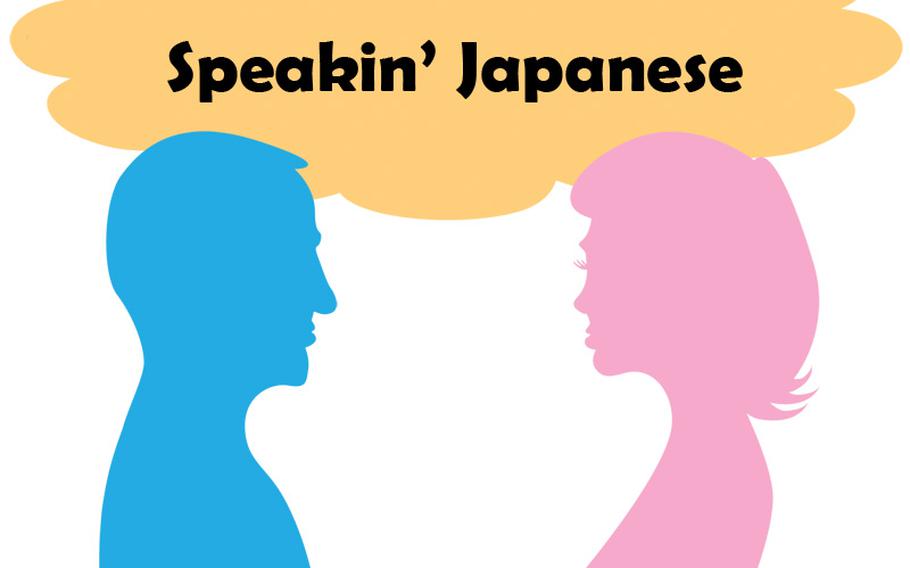Food & Drink
Speakin' Japanese: Talking romance on Valentine's Day
Stripes Japan February 13, 2025

(Stripes Japan)
Valentine’s Day is considered to be a great chance for women to confess their love in Japan. They give chocolates (often homemade) to men on the day to express their love. But don’t for a second think that all the women who are presenting you a chocolate are in love with you! You need to know there is a custom of women giving “giri-choko” (obligation chocolate) to their male friends, supervisors or colleagues to show their friendship. Men are supposed to give return gifts (usually candy) to the women who gifted them chocolates on White Day (Mar. 14). Enjoy the day and try to avoid thinking every woman who gives you chocolate loves you.
“Watashino chokoreeto wo uketotte kudasai.” = Please accept my chocolate. (“watashino” = my, “chokoreeto” = chocolate, “uketotte” = accept, “kudasai” = please)
“Kokorowo komete tukuri mashita.” = I made it with the greatest of care. (“kokorowo komete” = with the greatest of care, “tsukuri mashita” = made)
“Arigato gozaimasu.” = Thank you so much.
“Sukidesu.” = I love (like) you.
“Aishitemasu.” = I love you.
“Watashimo desu.” = I do, too.
“Tsukiatte itadake masenka?” = Will you go out with me? (“tsukiatte” = go together, “itadake masenka?” = will you … please?)
“Deeto ni ikimasenka?” = Let’s go on a date, shall we? (“deeto” = date, “ikimasenka?” = Let’s go, shall we?)
“Shokuji ni ikimasenka?” = Let’s go out for dinner, shall we? (“shokuji” = meal/dinner)
“Kireina akai bara wo doozo.” = Here’s a beautiful red rose. (“kireina” = beautiful, “akai” = red, “bara” = rose, “doozo” = go ahead/please)
“Chokoreeto wa osuki desuka?” = Do you like chocolate? (“osuki desuka?” = do you like..?)
“Kekkon shite itadake masenka?” = Would you please marry me? (“kekkon” = marraiage, “shite” = do)
“Anata wo shiawase ni shimasu.” = I will make you happy. (“anata” = you, “shiawase” = happy, “shimasu” = make/do)
“Yorokonde.” = With my pleasure.
“Sumimasen. Okotowari shimasu.” = I’m sorry, but I have to refuse. (“sumimasen” = I’m sorry; “okotowari shimasu” = refuse)
“Chokoreeto wo ikutsu morai mashita ka?” = How many chocolates did you get? (“ikutsu” = how many, “morai mashita” = have received)
“Itsutsu morai mashita.” = I got five. (“itsutsu” = five of, “hitotsu” = one of, “futatsu” = two of, “mittsu” = three of, “yottsu” = four of, “muttsu” = six of, “nanatsu” = seven of, “yattsu” = eight of, “kokonotsu” = nine of, “jukko” = ten of, “hyakko” = a hundred of)
“Giri-choko wo takusan moraimshita.” = I recieved many obligation chocolates. (“giri-choko” = obligation chocolates, “takusan” = many)
“Howaitodee ni kyandii wo okaeshi shimasu.” = I will present them with candies on White Day for return. (“howaitodee” = White Day, “kyandii” = candy, “okaeshi shimasu” = will present … for return)
When on OKINAWA, you can also say it in “Uchinaanguchi” (island dialect) like this:
“Kanasandoo.” = I love you.
“Valentine Yaakutoo, isshoni Gohan Kamiigai ichunnaa” = It’s Valentine’s Day today. Let’s go out for dinner, shall we?
“Majun narannaa?” = Would you please marry me?
“Yaa nukutoo shiawaseni sabii sa” = I will make you happy.
“Yorokonde onegee sabira” = With my pleasure
“Guburee yashiga naibiransaaya” = I am sorry, but I have to refuse.
“Chocolate suki yaibinnaa?” = Do you like chocolate?
“Nifeedeebiru.” = Thank you so much.